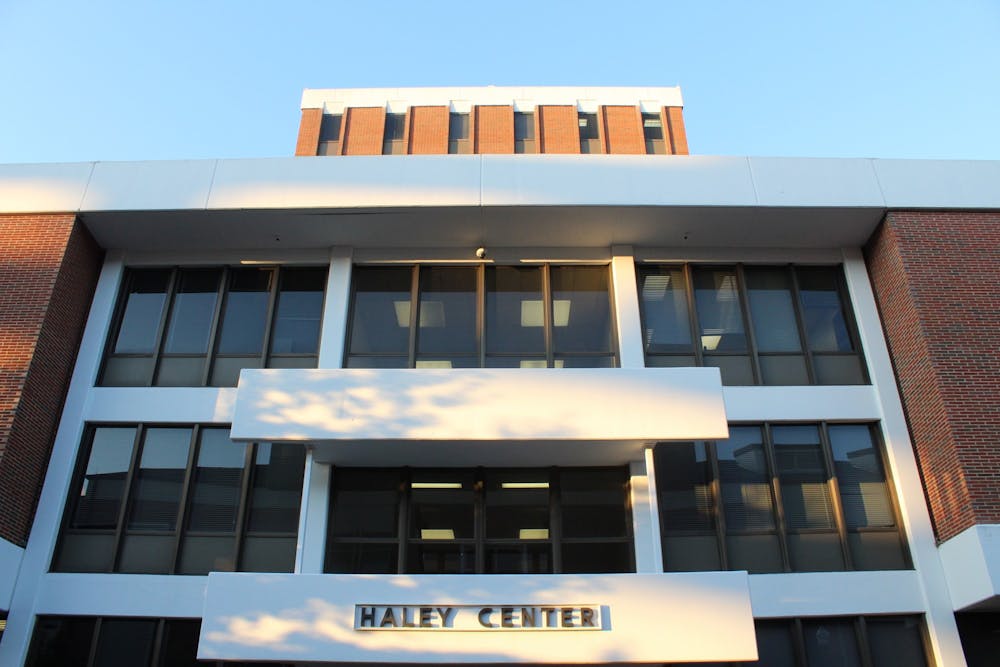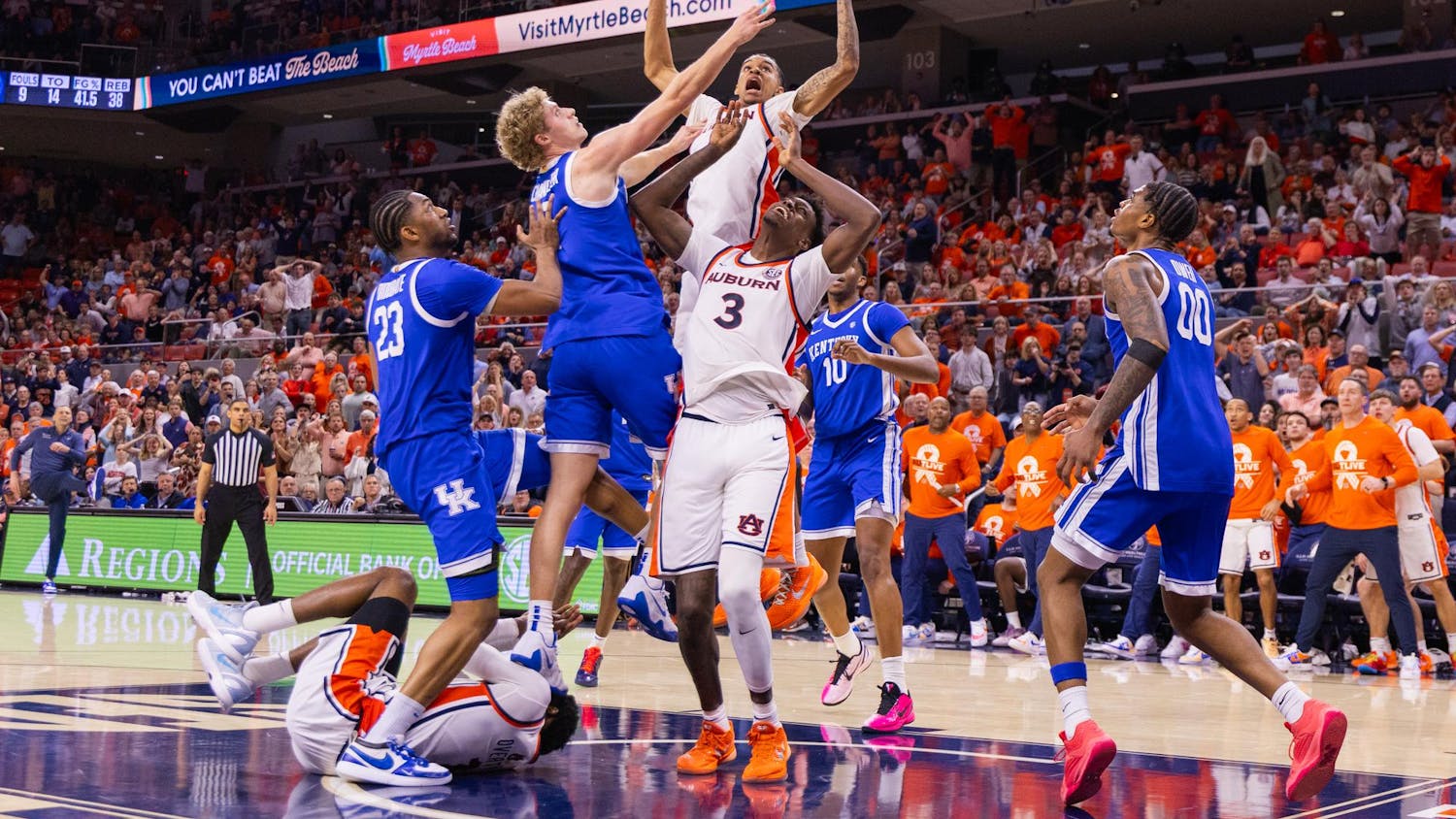Job security is important no matter where one works, and for those working in higher education, that job security manifests itself as tenure.
When a professor is granted tenure, they are granted certain administrative rights that give them the ability to pursue any form of academic research without repercussion.
While tenure may sound like a job for life, that definition is not quite correct. A professor with tenure can still be asked to leave, but the circumstances surrounding a removal must be egregious — and that egregious behavior or act must be easily provable.
This does not mean that a professor can be asked to leave for researching a topic that is unpopular; in fact, tenure is meant to protect and allow professors to research these unpopular and difficult topics.
“For instance, studying voting rights for felons is not necessarily something that a lot of people feel comfortable about,” said Cynthia Bowling, associate dean for research and faculty development in the College of Liberal Arts. “Without academic freedom, people would be a lot more reluctant to talk about really important issues.”
This is especially important for those researching topics in departments that have closer ties to the public and politics, as the topics they are researching can often paint a particular group in a negative light or fall on one side of the political spectrum. When this happens, Bowling said it is critical that researchers have a form of protection from retaliation.
“Faculty members could not do their jobs without [tenure], in terms of having the academic freedom to explore topics that are politically sensitive, or are cutting edge and brand new,” Bowling said. “It is a protection that the academy needs.”
In order to be tenured, one must first be hired to a university in a tenure-track position, also known as assistant professor. For the next five to six years, an assistant professor builds up their repertoire by participating in research, succeeding in the classroom and serving the community.
At the beginning of their sixth year, an assistant professor will then apply for promotion to associate professor, with tenure typically being awarded along with promotion. The requirements for tenure and promotion are basically the same, with promotion also requiring an applicant to be well-mannered.
The process of promotion is by no means easy. It begins when an assistant professor provides a dossier to the tenured faculty of their department, who then vote on it.
A dossier is essentially a summary of one’s major teaching accomplishments and awards gained in this five to six-year period, along with letters of recommendation, which are used to validate one’s standing in the academic community.
This dossier is where the path to tenure differs among departments and colleges. What is looked for by the departments, in terms of scholarly works on the dossier, is dependant on the particular department itself.
“In engineering, typically, journal publications is the measure … whereas in computer science, they have certain conferences that if you can get a paper there, that’s a big deal,” said Jeffery Fergus, associate dean for assessment and graduate studies in the College of Engineering. “In some disciplines, like history, it’s all about books. They don’t do as many journal articles as books.”
A passing vote from the tenured faculty in one’s department means that they support the promotion and tenure of an assistant professor. The department chair will then write a letter in support or opposition of the assistant professor up for promotion.
Then, the dossier goes to a college committee, with representatives from all the departments in that college, where the exact same process happens.
The dean of the college then writes a letter, like the one from the department chair, highlighting the strengths and weaknesses of each candidate. After this, the candidate and their dossier go to the university committee, with representatives from all the colleges.
Here, they review the faculty going up for tenure and promotion and make judgments on them. Fergus served on this committee for three years as the College of Engineering representative.
“When I was on the university committee, I would tend to look at the department more in general, because the department is closer to that discipline,” Fergus said. “As you’re moving through that process, you’re getting less and less familiarity with each person’s discipline.”
There is agreement for the majority of the cases that the university committee sees, which is around 80 per year, Fergus said.
Discussion happens in the few cases that involve disagreement.
In those, there is no one deciding factor that the university committee uses to determine a vote — there is, however, a discussion of what is right or wrong, Fergus said.
“Out of those 80, there might be 10 that really require discussion, and even of those, most of them are … pretty heavy one way,” Fergus said. “So there’s typically not very many where it’s really right on the border.”
Once a vote is passed by the university committee, the assistant professor is then granted tenure and subsequently promoted to associate professor.
In the rare cases that a vote is not passed, a candidate can reapply as long as they haven’t exceeded their seven-year track. Once the seven-year period is surpassed and an assistant professor hasn’t achieved promotion and tenure, the assistant professor is asked to leave the university.
The whole process from application to being accepted starts at the beginning of the fall semester and finishes in February and March.
There can be instances, however, of a university having too many professors with tenure.
Professors who are tenured are expected to perform research; doing so can take significant time away from teaching and lecturing students.
Universities must thus be able to support the needs and demands of their student population, and they do this by hiring temporary lecturers and teachers to fill in the gaps that tenured professors create.
Tenured professors are nowhere near as flexible, so universities sometimes seek a balance of both to be able to function effectively.
These teachers and lecturers are called adjunct professors, and they are hired part-time, often without health benefits, and are unlikely to have tenure potential.
This does not mean that lecturing or teaching positions are less important, however; these instructors are likely to form close bonds with their students and are able to allocate more of their time to their classes. Many adjunct professors possess the skills to become a tenured member of the faculty and perform research but decide not to for many reasons.
For Dwight Gulley, adjunct professor in the department of political science, his love for teaching and for his students.
“I’ve always been wanting to emphasize teaching and classroom stuff,” Gulley said. “It’s what I wanted to do when I got a Ph.D. in the first place, so I had to make a conscious choice which direction to go.”
Gulley said he values the connection and relationship he has with students more than anything. They’ll be tried and tested, and it won’t be easy, but they will reap the benefits of the amount of time that he is able to put into his work, he said.
“I’m amazed and constantly touched by the relationships I’ve had with students … and I can’t imagine doing anything else,” Gulley said.
One of the drawbacks of working as an adjunct professor, however, is the lack of job security; Gulley is working as many hours as a full-time employee of the University would be, but he only has a part-time status.
In 2018, there were 1,422 part-time faculty members such as Gulley, according to the Office of Institutional Research at Auburn.
This number is a sharp decrease from the 1,875 part-time members from the year prior.
While there is a frustration with this lack of job security, it’s not a frustration with the University, but with the reality of the way jobs are structured in higher education.
“I think there needs to be more wiggle room, in any college, for people who are more prioritizing of teaching,” Gulley said. “Teaching is not getting through a class, but getting them through and giving them something.”
Do you like this story? The Plainsman doesn't accept money from tuition or student fees, and we don't charge a subscription fee. But you can donate to support The Plainsman.





